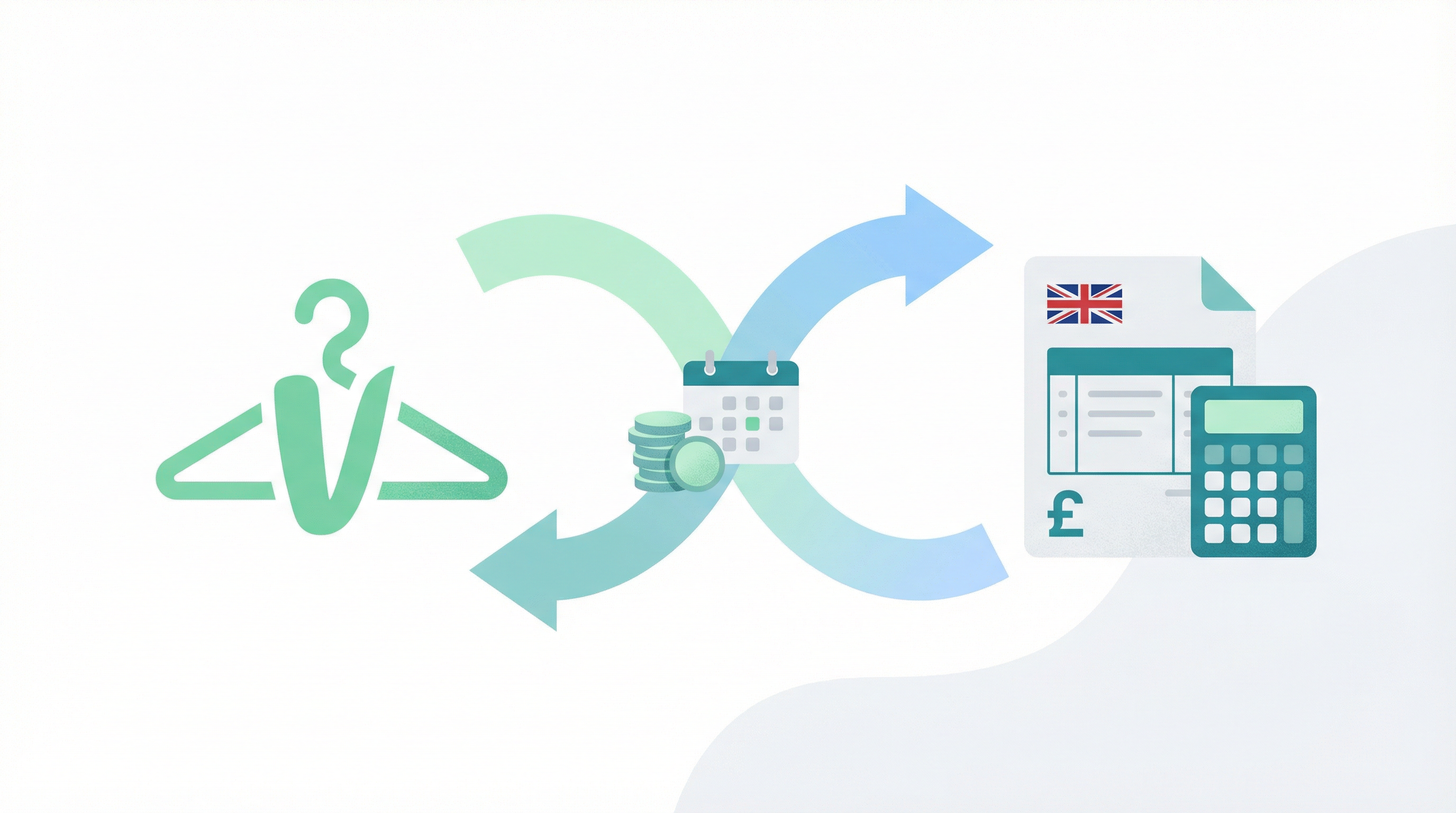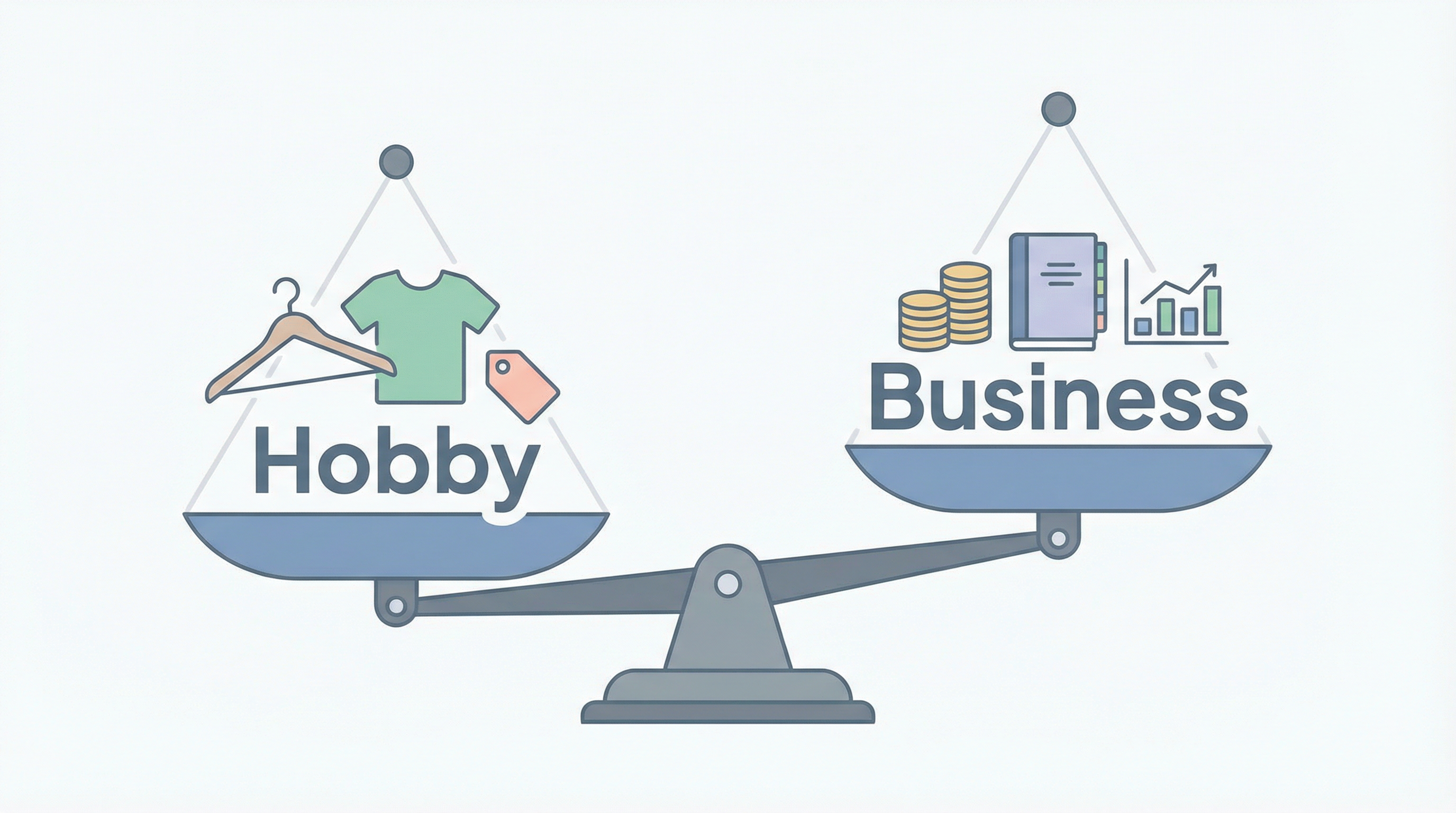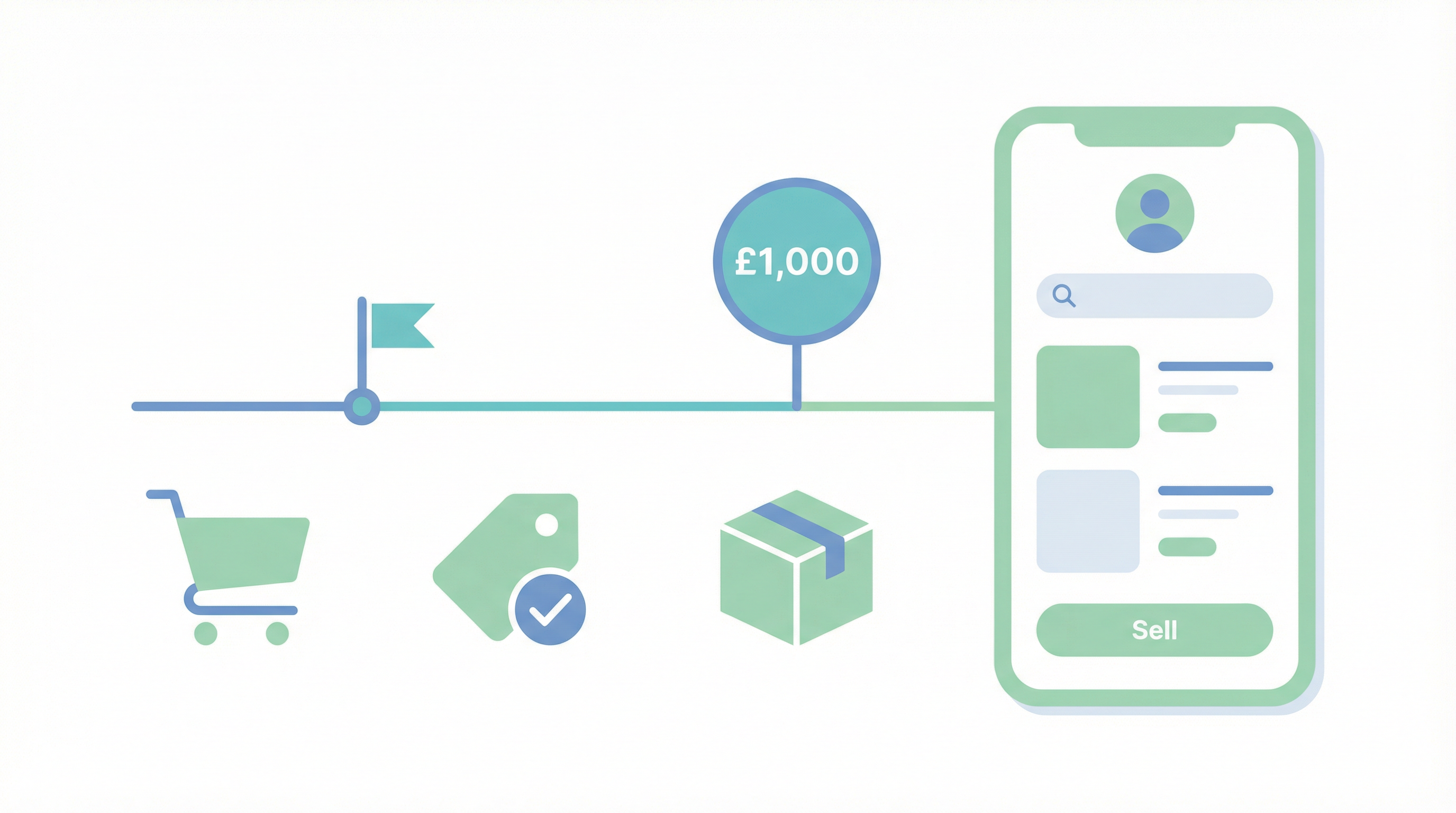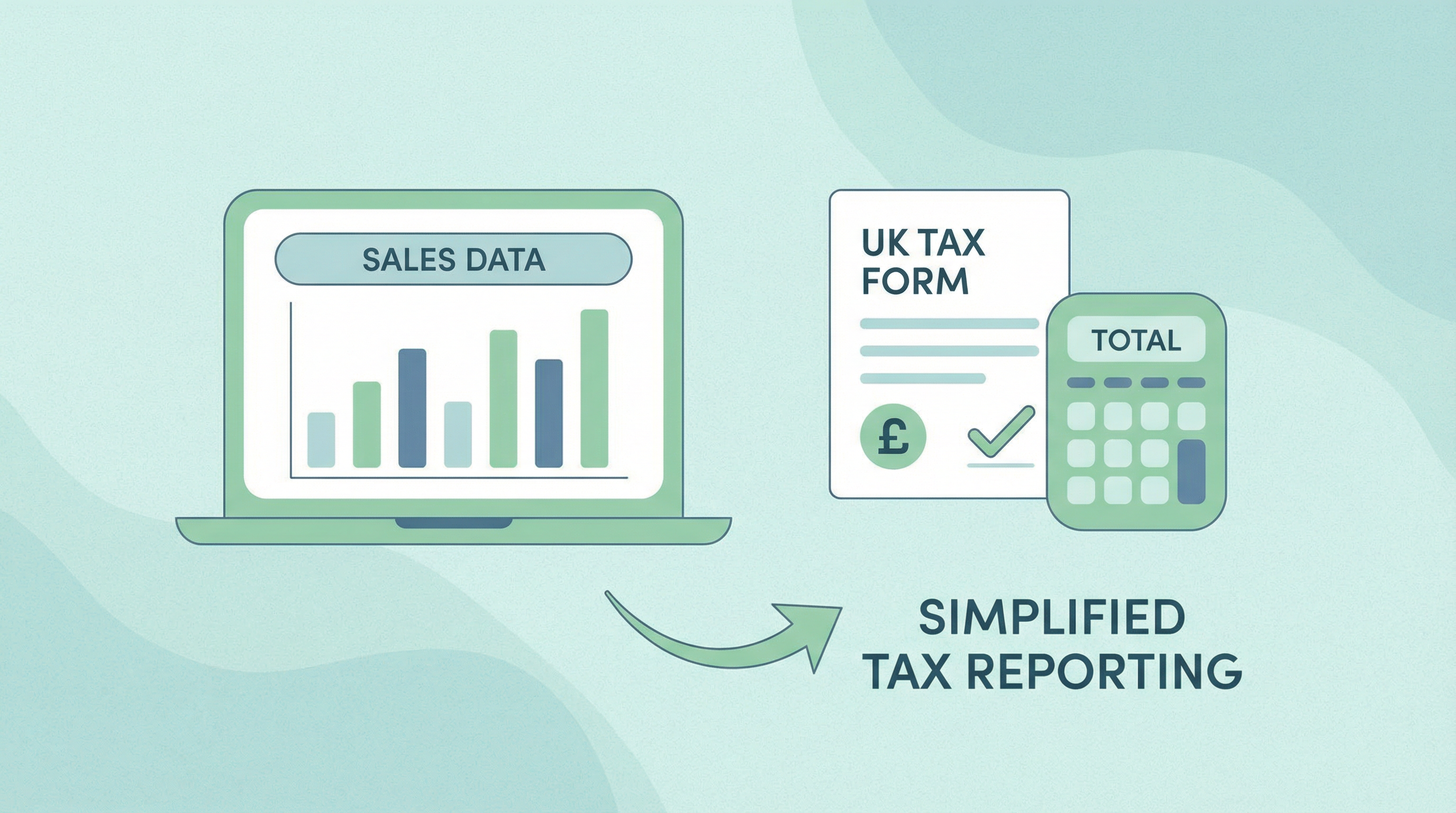Vinted Sales and UK Tax: When Do You Need to Pay?
Legal Notice: Vinta.app is independent and not affiliated with Vinted; Vinted has not reviewed or approved this content; this material is for information only and does not constitute legal, tax, or accounting advice.

Vinted Sales and UK Tax: When Do You Need to Pay?
"Do I have to pay tax on my Vinted sales?" It's one of the most common questions we see from the Vinted selling community, and with recent changes to how online platforms report earnings to HM Revenue & Customs (HMRC), it's more relevant than ever.
The good news is that not every Vinted sale automatically means a call from the taxman. However, it's crucial to understand where the line is drawn between casually selling unwanted items and running a taxable trading activity. This guide breaks down the key UK tax rules for Vinted sellers.
Selling Personal Items vs. 'Trading' on Vinted
The first step is to identify the nature of your Vinted selling:
- Selling Personal Items (Decluttering): If you're primarily selling clothes, shoes, or household items that you originally bought for your own use and no longer need, this is generally considered selling personal possessions. Think of it as a digital car boot sale or wardrobe clear-out.
- 'Trading' on Vinted (Business Activity): This is different. You are likely 'trading' if you:
- Buy items specifically with the intention of reselling them for a profit on Vinted.
- Make items yourself to sell.
- Sell items frequently, in high volumes, or operate in a manner that resembles a business (e.g., buying stock, consistent marketing, aiming for profit).
HMRC is mainly interested in taxing profits from 'trading' activities.
The £1,000 Trading Allowance: Your Key Threshold
For UK taxpayers, there's something called the trading allowance. This allows you to earn up to £1,000 gross income (that's income before deducting any expenses or fees) from trading activities in a tax year (6th April to 5th April) without needing to register with HMRC or pay tax on that income.
How does this apply to Vinted?
- If you are only selling your own personal, used items: And you are not doing this with the primary intention of making a profit (i.e., you're not a trader), you generally don't need to worry about Income Tax on these sales, even if the total amount you receive is over £1,000. You're typically just recouping some of the original cost of items you owned. (Note: Very high-value single personal items sold for a significant profit could attract Capital Gains Tax, but this is rare for most Vinted sales.)
- If you are 'trading' (as defined above): The £1,000 trading allowance is key. If your gross income from these Vinted trading activities (plus any other miscellaneous trading income you have from other platforms or casual work) is less than £1,000 in a tax year, you don't usually need to tell HMRC or pay tax on it.
When Do Your Vinted Sales Become Taxable?
Your Vinted sales will likely become a concern for Income Tax purposes if:
- You are 'trading' AND your gross income from these trading activities exceeds £1,000 in a tax year. This is the most straightforward trigger.
- You are clearly operating as a business with the intention of making a profit, regardless of whether you hit the £1,000 threshold in your very first year. The "badges of trade" (factors HMRC uses to determine if an activity is a business) can come into play. Consistent, profit-motivated selling points towards trading.
It's important to remember that the £1,000 trading allowance applies to your total gross income from all relevant trading activities, not just Vinted.
What to Do if Your Vinted Sales Are Taxable
If your Vinted activity is considered 'trading' and your gross income from it (and other trading) exceeds £1,000 in the tax year, you'll generally need to:
- Register for Self Assessment with HMRC: You'll declare yourself as self-employed (usually as a sole trader if you're just starting out).
- Keep Accurate Records: Track all your sales income and any allowable business expenses (e.g., cost of goods sold, Vinted fees, postage, packaging).
- File a Self Assessment Tax Return: Each year, you'll report your trading income and expenses to HMRC.
- Pay Income Tax and National Insurance: You'll pay Income Tax on your profits (income minus allowable expenses) that fall above your annual tax-free Personal Allowance (currently £12,570 for 2024/25 and 2025/26). You may also need to pay Class 2 and Class 4 National Insurance contributions depending on your profit levels.
How Vinta.app Can Help You Stay on Track
Understanding whether your Vinted sales are tipping into taxable territory starts with knowing your numbers. This is where Vinta.app can be invaluable:
- Track Your Sales Income: Vinta.app helps you easily monitor your total sales from Vinted. This allows you to see if you're approaching or have crossed the £1,000 gross income threshold from any potential trading activities.
- Manage Business Finances: If you determine you are trading and need to register with HMRC, Vinta.app provides a clear record of your Vinted sales income. Our CSV export feature can simplify the process of gathering figures for your Self Assessment tax return or for sharing with an accountant.
In Summary: Know Where You Stand
For most people casually selling a few unwanted items from their wardrobe on Vinted, UK tax isn't something to lose sleep over, thanks to the nature of selling personal possessions and the £1,000 trading allowance for those who might be doing a little more.
However, if you're regularly buying items to resell, making items to sell, or your sales from such activities are significant (over £1,000 gross income per tax year), it's vital to understand your responsibilities to HMRC.
Disclaimer: This article provides general information and should not be considered professional tax advice. Tax laws can be complex and change. If you are unsure about your specific tax situation, it's always best to consult with a qualified accountant or tax advisor, or refer to official HMRC guidance.
Need help keeping track of your Vinted sales?
➡️ Discover Vinta.app and take control of your Vinted finances today!
Tags

George Jefferson
Vinted Pro Seller and founder of Vinta.app, sharing expert insights on professional Vinted selling, tax compliance, and scaling your online business.


